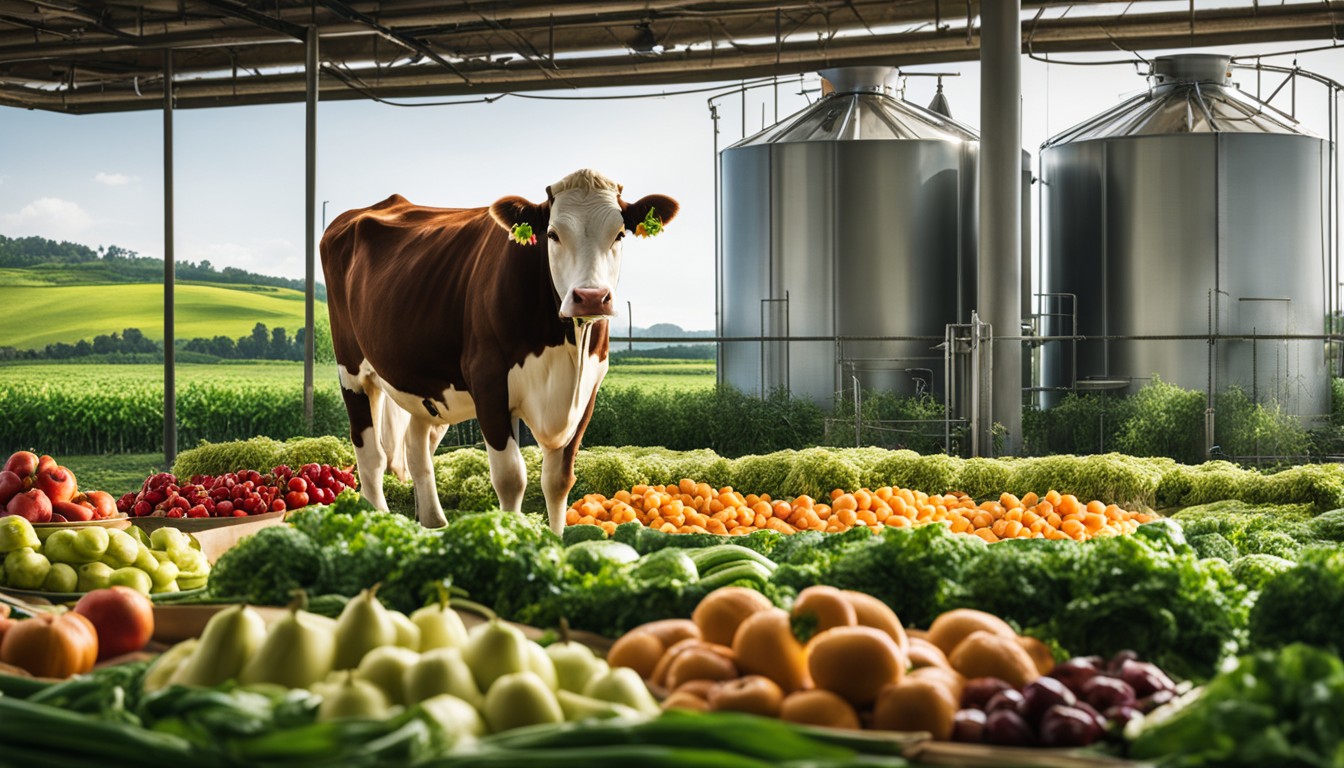Chipotle Mexican Grill, founded by Steve Ells, has established itself as a leading fast-casual dining option, known for its commitment to fresh ingredients and customizable meals. This SWOT analysis uncovers the strengths and weaknesses of Chipotle, alongside potential opportunities and threats that the company must navigate in an increasingly competitive market. By understanding these factors, stakeholders can gain valuable insights into the restaurant’s strategic position and future prospects.
The fast-casual dining segment is expanding rapidly, and Chipotle plays a pivotal role in this growth, leveraging its brand recognition and dedicated customer base. It faces challenges such as food safety concerns and competition from emerging players, but also has opportunities to innovate and enhance its customer experience through technology and sustainability initiatives.
This analysis aims to provide a comprehensive view of Chipotle’s current market standing by exploring its internal capabilities and external constraints. The outcome will reveal how Chipotle can maintain its edge in the dynamic food industry.
Key Takeaways
- Chipotle’s strengths include brand loyalty and a focus on fresh, quality ingredients.
- The company must address food safety challenges while capitalizing on market growth opportunities.
- Innovation in technology and sustainability is vital for Chipotle’s competitive advantage.
Company Overview
Chipotle Mexican Grill, Inc. is a prominent player in the U.S. fast-casual dining sector. Founded in 1993 by Steve Ells in Denver, Colorado, the company has grown significantly, becoming well-known for its focus on fresh ingredients.
The restaurant chain specializes in Mexican cuisine, offering customizable menu items such as burritos, tacos, bowls, and salads. This emphasis on fresh, high-quality ingredients has contributed to its brand identity.
Headquartered in Newport Beach, California, Chipotle operates numerous locations across the United States. As of the latest data, the company’s CEO is Brian Niccol, who has driven initiatives to enhance customer experience and operational efficiency.
Chipotle aims to distinguish itself from traditional casual dining establishments. It focuses on a more informal setting, allowing customers to enjoy their meals in a vibrant atmosphere. The brand has successfully tapped into the growing demand for fast-casual dining, which combines speed with a quality dining experience.
With a dedicated customer base, Chipotle continues to expand its presence while maintaining its commitment to sustainability and responsible sourcing.
Strengths
Chipotle’s strengths contribute significantly to its competitive edge in the fast-casual dining sector. The company’s robust brand recognition, commitment to quality ingredients, and innovative digital strategies enhance customer loyalty and operational efficiency. These strengths pave the way for sustainable growth and market leadership.
Brand Recognition and Loyalty
Chipotle boasts strong brand recognition, making it a popular choice for consumers seeking Mexican cuisine. Its distinct positioning as a fast-casual restaurant attracts a diverse clientele and fosters loyalty. The company’s marketing strategies reinforce this brand equity, often emphasizing its commitment to quality and sustainability.
Promotions and community engagement initiatives help maintain a positive brand image. Chipotle’s fans appreciate its focus on fresh ingredients, contributing to repeat business. Active social media presence further strengthens customer relationships, resulting in a dedicated customer base that actively promotes the brand.
Food With Integrity
Chipotle’s “Food With Integrity” ethos underscores its commitment to sourcing high-quality ingredients. This includes fresh produce, responsibly raised meats, and dairy products without antibiotics or hormones. Such sourcing practices resonate well with health-conscious consumers and those concerned about environmental sustainability.
This approach not only enhances the restaurant’s reputation but also meets the growing demand for transparency in food sourcing. Customers appreciate knowing where their food comes from, leading to increased trust and loyalty. This commitment differentiates Chipotle in a competitive market, positioning it as a leader in quality fast-casual dining.
Innovation in Fast-Casual
Innovation sits at the core of Chipotle’s operations, driving efficiencies and enhancing customer experiences. The company continually seeks to improve its menu and streamline processes without sacrificing quality. Its limited menu allows for easier management while maintaining high standards for freshness and flavor.
Chipotle has introduced unique menu items and seasonal promotions that attract new customers while retaining loyal ones. By prioritizing innovation, the company adapts to consumer preferences, ensuring relevance in a rapidly changing market. This strategic focus supports long-term growth and customer engagement.
Digital Sales Growth
The surge in digital sales is a noteworthy strength for Chipotle, especially following the pandemic. The brand efficiently leveraged online ordering through its user-friendly mobile app, enhancing the customer experience. This growth has been supported by a robust digital marketing strategy that drives engagement and convenience.
Chipotle’s investment in technology does not end with the app. It has incorporated Chipotlanes, which allow customers to pick up orders without entering the restaurant. This operational strategy optimizes service speed and improves customer satisfaction, reinforcing the brand’s appeal.
Effective Supply Chain
Chipotle’s effective supply chain management significantly contributes to its ability to provide fresh ingredients consistently. The company works closely with suppliers to ensure that products meet its quality standards. This collaboration helps maintain a consistent supply of fresh ingredients while minimizing waste.
Operational efficiency is achieved through streamlined logistics and inventory management systems. By focusing on these aspects, Chipotle maintains its quality while optimizing costs. This efficiency supports the brand’s commitment to sustainability and enhances its market position.
Weaknesses
Chipotle faces several weaknesses that can impact its operations and reputation. These include food safety concerns, limitations in menu offerings, and various operational challenges that could hinder its growth and customer satisfaction.
Food Safety Concerns
Food safety has been a significant issue for Chipotle, particularly after several E. coli outbreaks linked to its restaurants. These incidents have raised alarms among consumers and regulatory bodies, leading to damage in trust and brand reputation. The company has invested heavily in improving its food safety protocols, including sourcing from reputable suppliers and enhancing kitchen staff training. Despite these efforts, the lingering perception of risk remains a hurdle. High sodium content in some menu items can also exacerbate concerns, as health-conscious consumers increasingly seek healthier dining options.
Menu Limitations
Chipotle’s menu, while focused on customization, remains relatively limited compared to competitors in the fast-casual space. The emphasis on Mexican cuisine restricts appeal to a broader audience. Additionally, the lack of significant vegetarian or vegan options may alienate certain consumer segments looking for diverse meal choices. Adjusting the menu to introduce seasonal items or innovative dishes could create opportunities for attracting new customers. However, frequent changes could confuse loyal patrons accustomed to existing favorites.
Operational Challenges
Operational challenges at Chipotle include high labor costs and rising ingredient expenses. The company’s commitment to fresh, high-quality ingredients results in significant procurement costs, impacting overall profitability. Additionally, maintaining consistent service quality can be complicated, especially during peak hours, leading to longer wait times and customer dissatisfaction. Labor shortages in the industry further complicate staffing, making it difficult to maintain efficient service levels. This combination of higher operational costs and potential service delays can diminish the customer experience and deter repeat visits.
Opportunities
Chipotle has a range of opportunities that can significantly enhance its market position and drive growth. Focused areas include menu and market expansion, embracing digital innovation, committing to sustainability initiatives, and fostering partnership development.
Menu and Market Expansion
Chipotle can capitalize on consumer trends by expanding its menu. Introducing more vegan and vegetarian options aligns with the increasing demand for plant-based diets. Dishes featuring whole grains, beans, and fresh produce could attract a wider customer base.
Moreover, new products such as seasonal items or localized flavors can enhance customer engagement. Geographic expansion into untapped markets, particularly internationally, presents a chance to grow brand presence. Areas with rising interest in Mexican cuisine could yield substantial returns.
Digital Innovation
The rise of technology in dining presents Chipotle with opportunities for improvement. Investing in mobile and online ordering systems can streamline customer experience and drive sales. Enhanced e-commerce capabilities, such as loyalty programs, can encourage repeat business.
Additionally, implementing advanced analytics could provide insights into customer preferences. This data-driven approach can enhance menu personalization, allowing Chipotle to better cater to its target market. Digital innovation positions Chipotle as a modern fast-casual leader.
Sustainability Initiatives
Sustainability is increasingly important to consumers. Chipotle has the opportunity to strengthen its brand by enhancing sustainable practices. Sourcing ingredients from local and responsible suppliers can not only reduce its carbon footprint but also appeal to eco-conscious customers.
Implementing waste reduction strategies in restaurants can further enhance sustainability efforts. For example, adopting composting and recycling programs benefits both the environment and Chipotle’s reputation. By promoting sustainability, Chipotle can attract loyal customers and differentiate itself in a competitive market.
Partnership Development
Strategic partnerships can drive growth and enhance Chipotle’s offerings. Collaborations with local farms or suppliers can improve ingredient sourcing and quality. This approach supports local economies while promoting brand authenticity.
Additionally, partnering with technology companies for enhanced digital tools or delivery services can streamline operations. These alliances can improve customer convenience and expand reach. Building strong partnerships allows Chipotle to leverage external expertise while focusing on core competencies.
Threats
Chipotle faces several threats that could impact its market position and profitability. These threats arise from competitive market pressures, economic fluctuations, and supply chain risks. Each of these factors plays a crucial role in shaping the company’s operational landscape.
Competitive Market Pressures
The fast-casual restaurant sector is characterized by intense competition. Major players, such as Taco Bell and Moe’s Southwest Grill, not only offer similar menu items but also compete aggressively on pricing and promotional strategies. This competition can lead to unfavorable pricing pressures for Chipotle, eroding profit margins. Maintaining a unique brand identity and a loyal customer base becomes essential in this landscape. Market dynamics, fueled by changing consumer preferences, can further amplify this challenge. As new entrants emerge, Chipotle must innovate continuously to differentiate itself and retain its market share.
Economic Fluctuations
Economic downturns pose a significant threat to Chipotle’s business model. During periods of financial instability, consumers often reduce discretionary spending, which can directly affect sales in the dining sector. Chipotle’s premium pricing strategy may alienate budget-conscious consumers in tough economic times. Additionally, inflation can impact operational costs, from ingredients to labor, leading to potential price increases that might further deter customers. On the other hand, a booming economy can create opportunities, but watching for economic indicators is essential for strategic planning.
Supply Chain Risks
Supply chain stability is crucial for Chipotle, known for its commitment to high-quality ingredients. Disruptions, whether due to natural disasters, geopolitical tensions, or pandemic-related issues, can severely hinder operations. Chipotle’s reliance on specific suppliers for fresh produce can result in vulnerabilities, especially if those suppliers face challenges. Unfavorable weather conditions may impact crop yields, leading to ingredient shortages. Additionally, transportation costs can fluctuate, further complicating supply chain management. Ensuring a diversified and resilient supply chain strategy is vital for mitigating these risks and sustaining the food quality that Chipotle’s reputation relies upon.
Marketing and Customer Experience
Chipotle employs a multi-faceted marketing strategy focused on brand awareness and customer engagement. The brand is well-known for its commitment to fresh ingredients and ethical sourcing, which resonate well with health-conscious consumers.
The customizable menu allows customers to create meals tailored to their preferences, enhancing satisfaction and encouraging repeat visits. This feature is a significant selling point for many diners.
Digital orders have become increasingly popular. Chipotle has invested in technology to streamline online ordering and delivery, making it convenient for busy customers. This shift has proven effective in attracting a broader audience.
Marketing campaigns are crafted to highlight the brand’s values, including sustainability and community involvement. Engaging social media content helps maintain a strong connection with customers.
The Chipotle Rewards loyalty program is another significant initiative. This program incentivizes repeat business by offering points for purchases that can be redeemed for free items. This strategic move not only boosts customer retention but also enhances overall customer experience.
Through these efforts, Chipotle consistently works to create a positive environment where customers feel valued and connected to the brand. By leveraging effective marketing strategies and prioritizing customer experience, Chipotle continues to strengthen its position in the fast-casual dining sector.
Social Responsibility and Sustainability
Chipotle prioritizes social responsibility and sustainability as core components of its business model. The company operates under the principle of “Food With Integrity,” emphasizing ethically sourced ingredients.
Their sustainability efforts include a commitment to using responsibly-sourced meat. Chipotle works with farmers who adhere to humane treatment practices and sustainable farming methods. This not only ensures animal welfare but also supports local farmers.
In addition, Chipotle has adopted eco-friendly packaging. They focus on minimizing waste by utilizing materials that are recyclable and compostable. This initiative aligns with their goal to reduce environmental impact and promote sustainability throughout their supply chain.
Sustainability initiatives at Chipotle also encompass resource conservation. The company has made strides in reducing water usage and energy consumption across its restaurants. They regularly assess their sustainability practices to identify areas for improvement.
Furthermore, Chipotle encourages customers to make informed choices about their meals. By showcasing the origins of their ingredients, they aim to foster awareness of sustainable eating habits.
These efforts reflect Chipotle’s dedication to corporate social responsibility, integrating sustainable practices into every facet of its operations and customer engagement. The company’s approach illustrates a commitment to not just profitability, but also to the planet and the communities it serves.
Financial Performance
Chipotle has demonstrated strong financial performance in recent years. The company’s commitment to quality ingredients resonates with health-conscious consumers, helping to drive significant revenue growth.
In the fourth quarter of 2023, Chipotle reported revenues reaching $2.5 billion, reflecting a 15.4% increase compared to the previous year. This upward trend underscores its effective strategies in attracting and retaining customers.
Revenue Streams
Chipotle’s revenue primarily stems from in-store sales, with a growing contribution from digital and delivery services. The emphasis on a customizable menu allows for higher customer satisfaction, encouraging repeat visits.
Competitive Advantage
One key competitive advantage is Chipotle’s focus on fresh, high-quality ingredients. This approach not only differentiates the brand but strengthens customer loyalty among health-conscious consumers.
The company also leverages its brand image and transparency about sourcing, further enhancing its appeal. As the demand for healthier dining options continues to rise, Chipotle is well-positioned to capitalize on this trend.
Innovation and Technology
Chipotle has embraced innovation and technology to enhance customer experience and streamline operations. The focus on digital transformation and product customization has positioned the brand favorably within the competitive fast-casual dining sector.
Digital Transformation
Chipotle’s commitment to digital innovation is evident in its user-friendly ordering app. This platform enables customers to easily access the menu, customize their orders, and make payments. The app has significantly improved the efficiency of mobile ordering, allowing for quicker service and reduced wait times.
In 2024, Chipotle expanded its capabilities by integrating more features such as loyalty programs and personalized promotions. This digital-friendly approach not only attracts tech-savvy consumers but also fosters customer loyalty while providing valuable data insights for better-targeted marketing strategies.
Product Customization
Customization is a cornerstone of Chipotle’s business model. Customers can choose from a variety of ingredients to craft their ideal meal, reflecting personal tastes and dietary preferences. This emphasis on customization enhances customer satisfaction and encourages repeat visits.
The ordering app facilitates this process by offering visual displays of available options, making it easier for customers to navigate choices. Additionally, the ability to save favorite orders streamlines future transactions, increasing convenience and reinforcing brand loyalty. This level of personalization sets Chipotle apart in a market that increasingly values customer-centric experiences.
Frequently Asked Questions
This section addresses key aspects of Chipotle’s business, highlighting its strengths, weaknesses, opportunities for growth, potential threats, competitive landscape, and its evolution over time.
What are Chipotle’s main strengths in the current market?
Chipotle’s commitment to using high-quality, fresh ingredients sets it apart in the fast-food sector. The brand’s customizable menu appeals to diverse consumer preferences, making it a popular choice. Additionally, strong brand loyalty and recognition contribute to its competitive advantage.
Can you outline the primary weaknesses that affect Chipotle?
One significant weakness is Chipotle’s vulnerability to food safety issues, which have impacted its reputation. The company has faced criticism over labor practices, including instances of child labor violations. This can lead to negative publicity and affect customer trust.
What opportunities are available for Chipotle’s business growth?
Chipotle has the opportunity to expand its menu options, particularly by incorporating plant-based and healthier choices. Geographic expansion into international markets could also drive growth. Embracing digital innovations, such as enhanced online ordering and delivery services, can improve customer engagement.
What potential threats should Chipotle be aware of?
Economic fluctuations can affect consumer spending in the fast-food industry, posing a threat to sales. Increased competition from both traditional fast-food chains and new, health-focused eateries may challenge Chipotle’s market position. Additionally, supply chain disruptions can impact ingredient availability and pricing.
How does Chipotle’s competitive landscape shape its strategic choices?
The competitive landscape requires Chipotle to remain agile in its strategic decisions. It must continuously monitor trends in consumer preferences and competitor offerings. This enables Chipotle to differentiate itself by emphasizing quality, sustainability, and a unique dining experience.
In what ways has Chipotle evolved since past SWOT analyses?
Since previous SWOT analyses, Chipotle has implemented stringent food safety protocols to rebuild trust with consumers. The introduction of digital ordering and loyalty programs has enhanced customer experience. Ongoing efforts to promote sustainability reflect its adaptation to changing consumer values.







